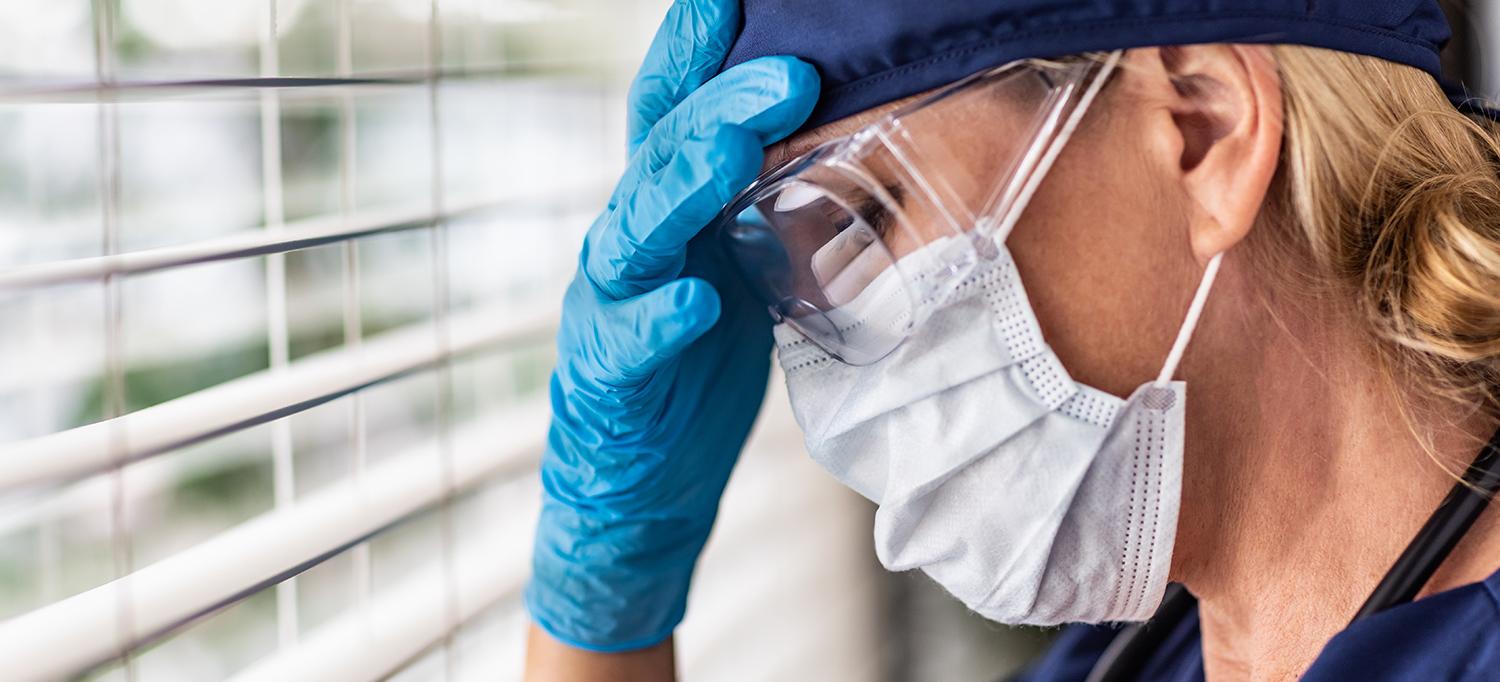
Photo: Feverpitched/Getty
The 2019 coronavirus disease (COVID-19) pandemic is more and more frequently being compared to a war. While the enemy, the virus, is invisible, healthcare personnel are experiencing emotions familiar to soldiers in battle.
“The reactions include such things as grief, loss, fear, isolation, loneliness, feeling guilty that you can’t do more to save people, and feeling responsible for those who die,” says Charles R. Marmar, MD, chair of the Department of Psychiatry at NYU Langone. “It’s a combination of reactions, and then over time, in a minority of frontline workers, we do see significant symptoms of acute stress disorders, depression, and anxiety disorders,” he tells Wake-Up Call with Katie Couric.
What’s more, it’s still too early to tell exactly how frontline health workers will fare, as the pandemic is not over. “Many, with great courage and strength, have been able to work through this and perform amazingly well under extreme stress,” Dr. Marmar says. However, “we don’t yet know the outcomes of this new disease, and we don’t know the true psychological cost to the frontline,” he explains.
Dr. Marmar says there are resources available to frontline healthcare workers. At NYU Langone, the Departments of Psychiatry and Child and Adolescent Psychiatry have built a website for employees (login required) with educational information and support resources. Support groups serving general faculty and particularly high-risk groups—like emergency medicine personnel and frontline nurses—are also available, as well as psychiatric nurses who have been deployed as a resource for frontline personnel. Expert psychological and psychiatric treatment services are available for those who need them.
Dr. Marmar says he is also working with the American Psychiatric Association’s Committee for the Psychiatric Dimensions of Disaster to help develop a more coordinated nationwide response.
“There will unfortunately, to some extent, be a wave of psychiatric and psychological difficulties,” he says. “What we don’t want is for those to lead to tragic consequences.”
Read more from Wake-Up Call.